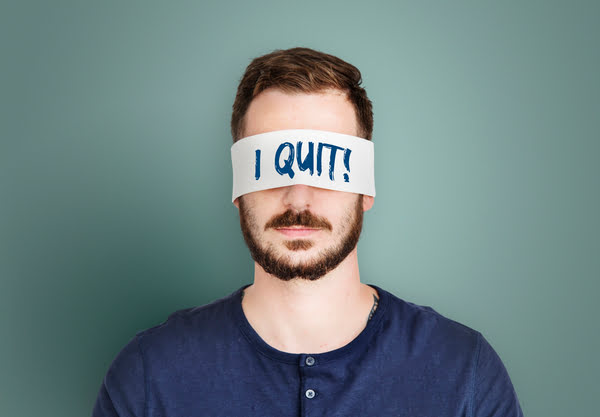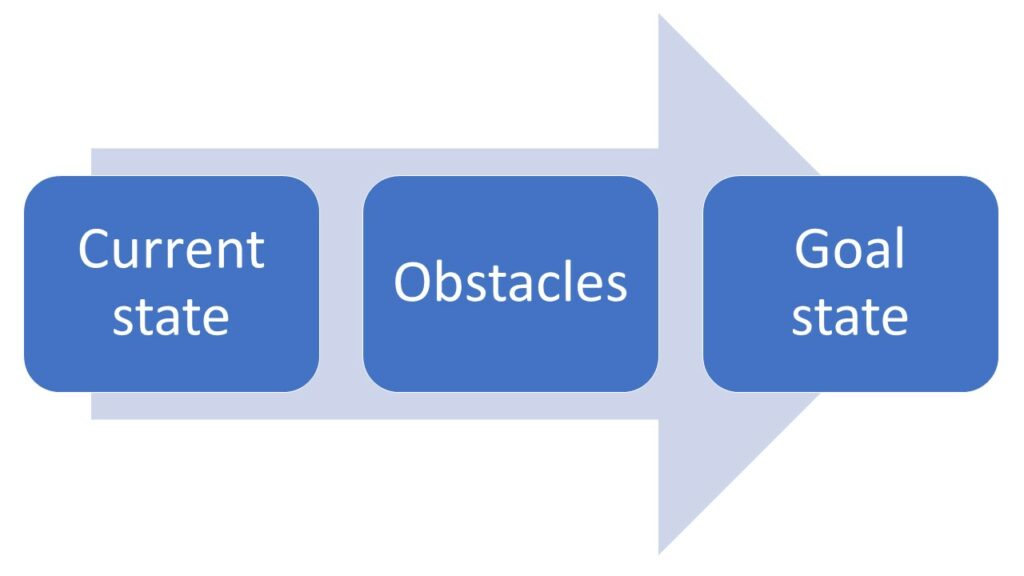How does someone come to a point where they want to give up in life?
Why do some people seem like they’ve already given up on life?
We all have goals and dreams. Many of these goals, like being in a good relationship, are genetically programmed into us. So for the most part, we don’t even get to choose our goals. They come with the genetic package we’re born with.

Broadly speaking, people have goals in three major life areas– career, health, and relationships. When we reach our goals in all the three areas, we maximize our chances of survival, reproduction, joy and happiness.
However, excelling in these life areas is anything but easy. There are lots and lots of challenges and obstacles along the way.

Facing a minor setback in trying to reach our goals doesn’t usually bother people much or make them hopeless. But when the obstacle or challenge becomes overbearing, people start losing hope. That’s when they feel like giving up on life. They don’t think they can make it.
Why give up on life, though?
If you can’t reach the goals you were genetically programmed to reach, what’s the point of carrying on?
Our ancestral environments had scarce resources. If a family member couldn’t survive and reproduce, that family member was a drain on the family’s resources. Keeping that person alive was costly and came in the way of the reproductive success of other family members.
Evolution had to figure out a mechanism by which the ‘loser’ of the family could give up hope and contemplate eliminating themselves. This is the psychology behind suicidal ideation.
While not everyone who gives up on life considers ending their life, they’re pretty close to it psychologically. They may have some hope left or be too afraid to end it all.
Events that trigger the feeling of giving up on life
Major setbacks in trying to achieve your career, health, and relational goals can make you want to give up on life. Feeling like giving up on life equals hopelessness, a major symptom of depression. So, people who feel like giving up on life are likely to be depressed.
A major setback in one life area can affect other life areas. As they say, misfortunes never come singly.
For instance, if you lose your job, you may also lose your relationship. If you lose your relationship, you may also stop caring for yourself and lose your health. Such total catastrophe can quickly drive people to the point of giving up on life and contemplating ending it all.
Signs of giving up on life
Let’s now learn how to recognize the signs of giving up on life in ourselves and others:
1. You’ve failed to meet your expectations
As kids, we have huge expectations from our lives. By 20, I’ll do this. By 30, I’ll do that. We daydream of extreme success in every life area. The mind does this so we can be hopeful about the future, continue to survive, and be excited about life.
However, as people grow old, many realize that we’ve fallen behind on their dreams. Our current reality doesn’t match our prior expectations. This can be highly demotivating and force someone to give up on life.
2. You have no hope left
Often the only thing that pushes us to work towards our goals is hope. When that hope is gone, the effort we put towards our goals goes with it. There’s no point in trying.
All worthy goals in life are long-term goals. When working on long-term goals, you have to count on hope because you don’t see any immediate progress.
3. You’ve stopped dreaming
You get to a point where you see no point in dreaming about the future. It’s a silly thing that you did as a kid. You ought to be more practical and realistic now.
This thinking can be detrimental to your progress and a clear sign that you’ve given up on life.
4. You feel you can’t control life
If you’ve suffered a significant setback in life, especially one you had no control over, you’re likely to believe you can’t control your life. When you think you have no control over your life, you let life slip away from your hands.
You’re like:
“Screw it! I’m done trying to control life.”
5. You’ve lost excitement for life
With all the dreaming and hoping for a better future comes excitement. You can’t wait to step into your glorious future where you’ve reached your goals.
No excitement means having no goals to look forward to. People with goals have a spark in their eyes that those without goals who’ve given up on life are missing.
The latter lack energy, enthusiasm, and a zest for life.
6. You don’t take care of yourself
Have you noticed how you take good care of yourself when you’re doing well? Doing well in one life area gives you hope and energy to improve other areas. If you get promoted, for instance, you may want to start hitting the gym. Things look positive.
Except when they don’t.
As soon as you hit a setback in one life area, other areas get affected too. You don’t feel like taking care of yourself anymore. There’s no hope. What’s the point?
It’s like when you eat one piece of cake and break your rule of avoiding junk food. You’re like:
“I’ve already messed up. What’s the point? Let’s eat the whole thing.”
7. You constantly compare and feel miserable
As social species, we humans can’t help but compare ourselves to others. When things are not good for us, we’re especially vulnerable to comparison-driven misery. We compare ourselves to others who’re doing better than us and feel miserable.
8. You no longer laugh as much
Laughing and making others laugh is often a by-product of a good mood and happiness. If you’re not in a good mood, it’s hard to laugh and make others laugh. When you’ve hit rock bottom in life, the last thing you want to do is crack jokes.
Although some people do use humor to cope, they’re rare.
9. You’re overwhelmed and burned out
When you’re mired in the obstacles on the path toward your dreams, it’s easy to get frustrated, overwhelmed, and burned out.
10. You carry past baggage
Past emotional baggage and unresolved traumas can seriously slow down your progress. The only reason people want to resolve traumas is so they can move forward. If traumas didn’t impede our ability to reach our goals, no one would care about resolving them.
Traumas interfere with our relational goals the most. If you’re single, you’re yet to see the devastating effects that past baggage can have on a relationship.
11. You feel worthless
We reach our goals by helping others reach theirs. So, the more you excel in life, the more likely it is that you’re helping others excel too. When we contribute to society in significant ways, our self-esteem skyrockets.
When we don’t, we feel worthless. This is why you come across people who seem to be living decent lives, but deep down, they’re unsatisfied. They’re unsatisfied because they feel they haven’t reached their potential or made a significant impact.
12. You’re socially withdrawn
Feeling worthless makes you avoid putting yourself out there. You feel like people have no reason to like or value you.
13. You’re apathetic
When you’ve lost everything, nothing matters. You become apathetic because you have nothing to lose. You have nothing to care for.
14. You’re negative about everything
You’re negative about yourself, people and the world. You blame external forces for the way your life has turned out. If anyone tries to help you or give advice, you immediately shut them down with an “It won’t work”.
The key is to restore hope
Life is full of challenges and obstacles. You don’t have to give up on life just because you’re facing an obstacle. Often, people’s success skyrockets after they’ve hit rock bottom. You don’t have to smash all your goals now. All you need to do is restore hope.
The best way to do that is to surround yourself with people living the life you want to live.
Educate yourself and seek help from people who’re already where you want to be.
Work on your mindset and beliefs. If you have negative and nonsensical beliefs like “money doesn’t bring happiness” or “all men are cheaters”, they won’t help you reach your goals.
